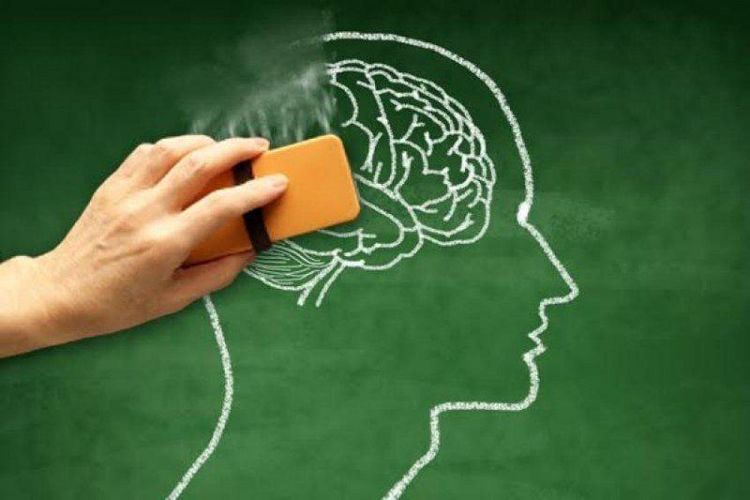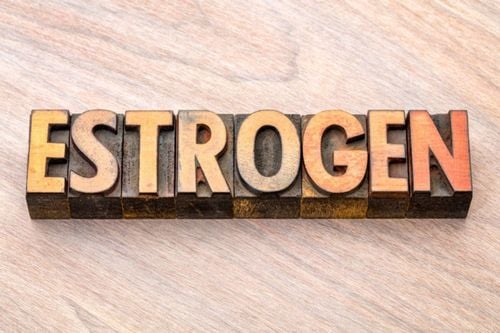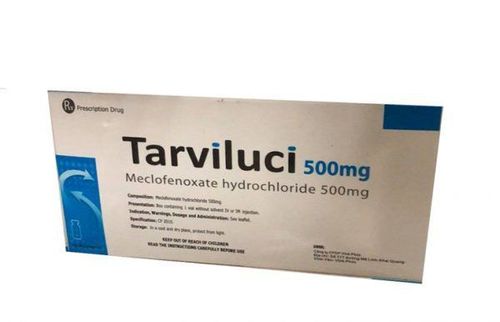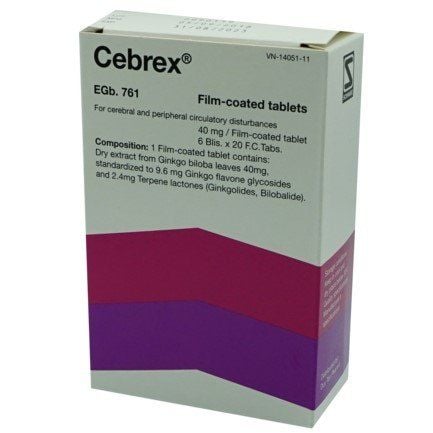This is an automatically translated article.
The article was written by doctors of Internal Oncology Department, Vinmec Times City International General Hospital.Brain aging is one of the side effects of therapies, especially chemotherapy, affecting cognitive function in patients after cancer treatment. According to the American Cancer Society (ACS), this condition is also known as cancer treatment-related cognitive decline. The duration of the effects of this condition, as well as their severity, varies widely. While there are no tests to diagnose the condition nor specific treatment protocols, certain medications and coping strategies have been shown to be helpful in some patients.
1. What is impaired brain function?
During many years of working in medical examination and treatment for patients, I often hear patients complain that after treatment, their memory is impaired, remembering to forget, being emotional, restless, etc. The exact cause is not known, these mental problems are known as impaired brain function.
The brain changes that cancer patients notice are real, not imaginary. They can last for only a short time, possibly for many years. These changes make it difficult for the patient to return to school, work, participate in social activities or take a lot of effort to make it. Therefore, impaired brain function affects daily life and quality of life for many people with cancer.
Here are some examples of impaired brain function:
Forgetting things that would normally be remembered (amnesia) Difficulty concentrating Difficulty remembering details such as names, dates and sometimes major life events Difficulty doing several things at once, like answering the phone while cooking, then forgetting about cooking Takes longer to get things done (thinking, organizing, and processing slower) Difficulty remembering common words (can't find the right words) Prolonged decline in brain function is a major factor affecting the patient's life and quality of life. For most patients, the condition is short-lived, but some last longer. Usually the changes that the patient experiences are very subtle and even the people around do not notice any changes. Only sick people can clearly see the difference in their minds.
That's why many patients don't talk to a loved one or a support group until the condition directly affects their daily life.
2. What causes the decline in brain function?
Usually symptoms of impaired brain function begin during and shortly after treatment, but there are some cases where new symptoms arise 1 time after treatment has ended. Many cancer treatments, including some chemotherapy and radiation, can cause problems with short- or long-term decline in brain function.
Some people with cancer have brain problems despite not having chemotherapy. These people have problems with hormone treatment, such as treatment for breast or prostate cancer. For some people, problems arise after surgery.

Điều gì gây ra suy giảm chức năng não?
Cancer Drugs used in treatment such as steroids , anti-nausea or pain medication Surgery and drugs used in surgery (anesthesia) Low blood counts Sleep problems Infections Fatigue Hormonal changes or treatments hormones Other diseases such as diabetes or high blood pressure Nutritional deficiencies Patient's age Depression Stress, anxiety or mental pressure Most of these are short term problems, and will be resolved or gone. A few other problems, such as depression, can cause problems for longer unless definitively treated.
3. How to deal with brain function decline?
3.1 Repeat daily tasks Keep everything in a place where it's easy to find when needed. Brain exercise. Take classes, solve word puzzles, or learn another language. Get enough rest and sleep. Body movement. Regular physical activity is not only good for the body, but also improves mood, more alertness and reduces fatigue. Eat vegetables. Studies have shown that eating more vegetables is good for the brain in old age. Establish and follow routines. Try to keep the same daily schedule. Choose a certain location for things that are often lost (like keys). Don't try to do many things at once. Only do one thing at a time. Ask for help when needed. Friends and loved ones can help with everyday tasks to reduce distractions and save you mental energy. Memory tracking. Use a log to record what happens. The drugs used, the time of day, and the circumstances in which it occurred can help figure out what affects memory. Try not to pay attention to how these symptoms affect you, many patients have shared that laughing about the uncontrollable things will help you feel more comfortable. 3.2 Talking to others It is possible and advisable to not be afraid to talk to family, friends and the cancer care team about it. Let them know what you've been going through. It's more comforting to tell people about problems with your memory or thinking.

Trò chuyện với bạn bè
3.3 Talk to your doctor or healthcare team If brain problems are causing your trouble, talk to your doctor to try to determine exactly what is causing the brain problems, especially for with people whose brain function decline lasts more than a year and is constantly having trouble in daily life. When to see a doctor:
Bring a list of all the medicines you take, including those herbs, vitamins, supplements, and medications you take. Bring a friend or family member to keep track of what goes on during your doctor's appointment. They can also describe the changes they see if the doctor wants to get a different perspective on your problems.
4. Can brain dysfunction be prevented?
To date, there is no way to prevent decline in brain function. For some people, cancer treatment means having trouble with their brains, memory, planning and finding the right words.
The causes of cancer-related brain problems and treatments are still being studied. Decline in brain function seems to occur more often with high doses of chemotherapy, as does radiation therapy. But because the decline in brain function is usually mild and goes away with time, so don't change or miss the treatments like chemotherapy, radiation, etc. that your doctor prescribes for you
Effort Accompanying cancer patients in Vietnam, the Center for Oncology - Radiation Therapy at Vinmec International General Hospital was built according to international standards, using a multi-specialty approach to diagnosis. choosing the right treatment regimen for each patient, contributing to comprehensive patient care.
Vinmec Cancer - Radiation Center is one of the centers in Vietnam that is fully equipped with cancer treatment models: From surgery, radiation therapy, chemotherapy, hematopoietic stem cell transplant, treatment pain and palliative care. The diagnosis is made carefully: Blood tests, advanced imaging techniques such as: PET/CT, SPECT/CT, MRI..., myelogram, biopsy, histochemistry Immunoassay, diagnosis by molecular biology. The treatment process is closely coordinated with many specialties.
Vinmec Oncology Department continuously cooperates with prestigious hospitals of the US, France, Korea, Taiwan, Japan... in cancer treatment, and is committed to providing modern treatment methods. with the highest level of expertise, convenience, dedication and reasonable cost right in Vietnam.
Please dial HOTLINE for more information or register for an appointment HERE. Download MyVinmec app to make appointments faster and to manage your bookings easily.
Articles refer to the source: Cancer network












